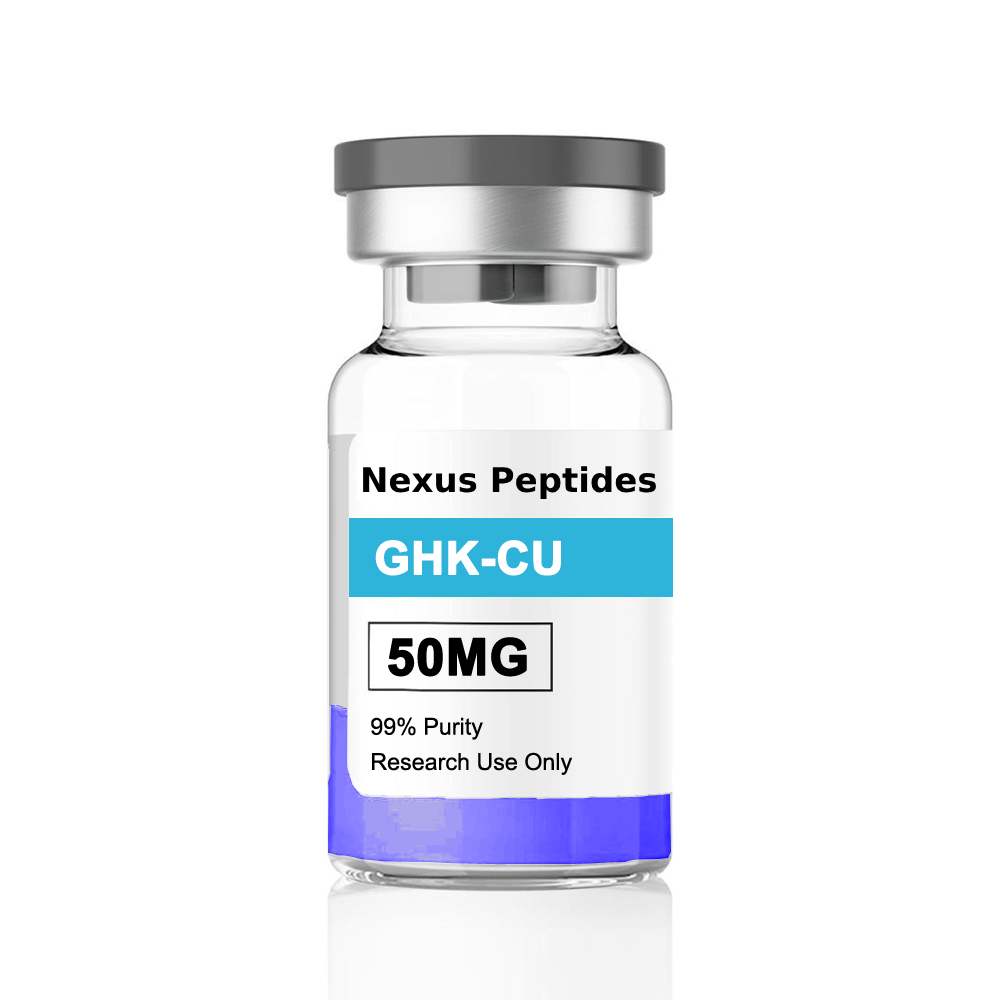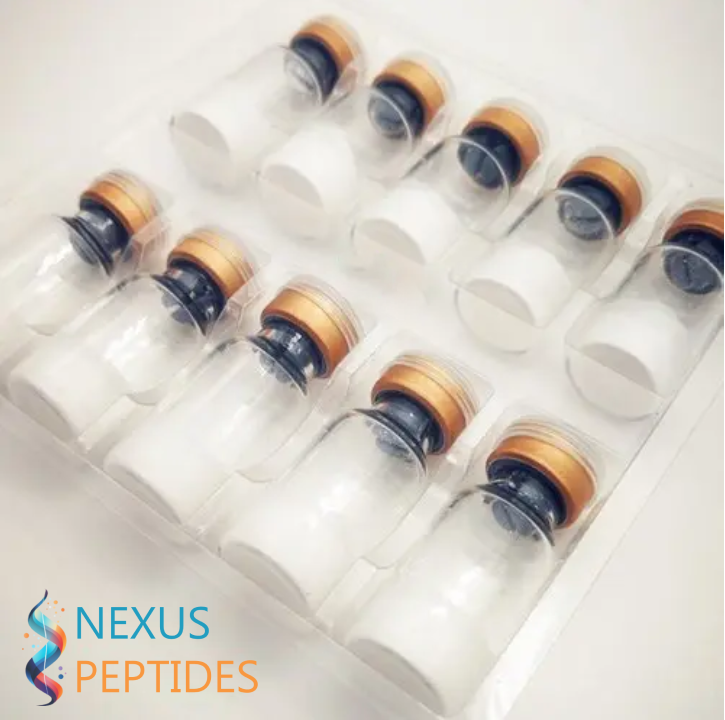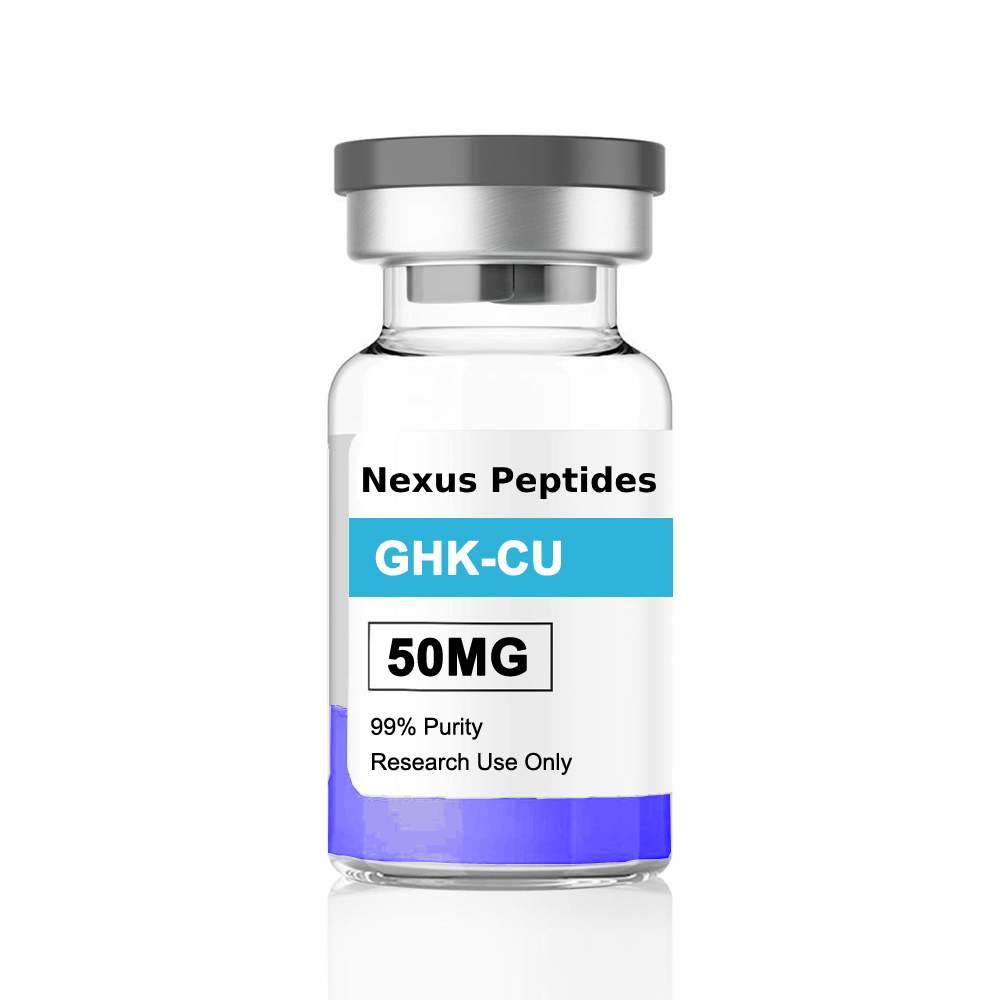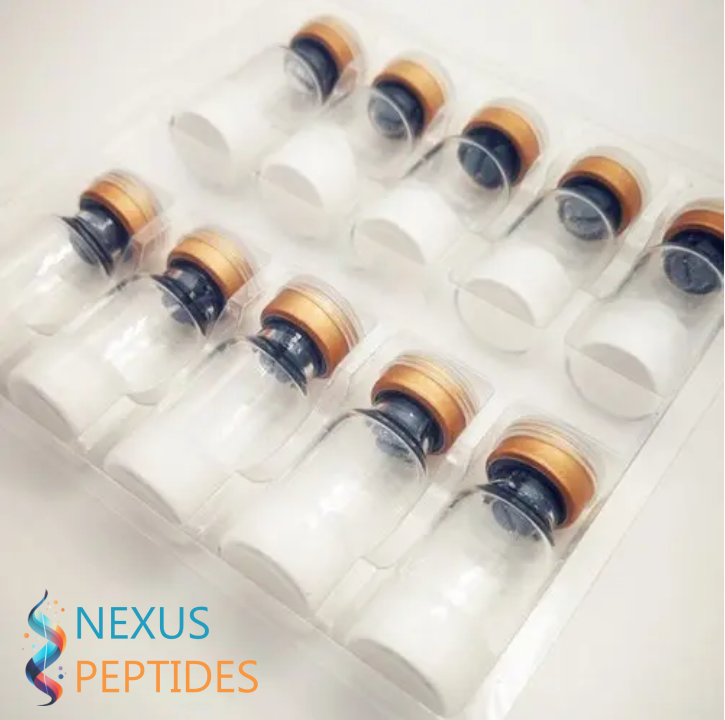

Product Description: GHK-Cu
Introduction:
GHK-Cu, or Copper Tripeptide-1, is a naturally occurring peptide composed of three amino acids: glycine, histidine, and lysine, bound to a copper ion. This peptide has gained significant attention in scientific research due to its potential biological roles in wound healing, tissue repair, and various cellular processes. Researchers are particularly interested in GHK-Cu's interactions with proteins involved in cell signaling, and its ability to bind to copper, which is crucial for a variety of enzymatic and biochemical activities. It is widely used in scientific experiments to study peptide-based therapies and tissue regeneration.
What is GHK-Cu?
GHK-Cu is a copper-binding peptide that consists of the amino acids glycine, histidine, and lysine. The peptide is highly bioactive and has been studied for its ability to interact with various biological systems, especially those involved in cellular repair and growth. The copper ion in GHK-Cu is critical for its activity, as copper plays a central role in a range of enzymatic processes that influence cellular function.
This peptide is naturally present in human plasma and has been identified as a signaling molecule with a variety of potential applications in laboratory-based research. Researchers have been exploring GHK-Cu for its potential interactions with growth factors, enzymes, and its overall role in the maintenance of tissue homeostasis.
Potential Different Names:
- Copper Tripeptide-1
- GHK-Cu
- Copper Peptide
- Tripeptide GHK-Cu
- Copper Glycyl-Histidyl-Lysine
Chemical Formula:
- Chemical Formula: C14H24CuN6O4
Structure:
GHK-Cu is a small peptide consisting of three amino acids—glycine, histidine, and lysine—combined in a specific sequence. These amino acids are linked together to form the peptide chain, and the peptide binds to a copper ion (Cu²⁺) at the histidine residue. This copper binding is essential for the peptide's biological activity, enabling it to interact with various biochemical pathways in cells and tissues.
The specific sequence and structure of GHK-Cu allow it to interact with enzymes and other biological molecules, influencing a variety of cellular processes. The presence of the copper ion enhances the peptide’s functional properties and contributes to its ability to bind with specific biological receptors and enzymes.
How Does It Work?
GHK-Cu functions primarily by interacting with a range of cellular components, such as enzymes, receptors, and growth factors. The copper ion is critical for the peptide's ability to influence biochemical pathways. It is involved in processes like tissue remodeling, cellular regeneration, and wound healing. GHK-Cu has been studied for its role in promoting collagen synthesis, which is important for maintaining the integrity of skin and connective tissues.
Researchers focus on the peptide’s interaction with enzymes known as metalloproteinases, which play a role in the breakdown and synthesis of extracellular matrix components. The copper ion within GHK-Cu is thought to influence these metalloproteinases and other enzymes, contributing to the regulation of tissue homeostasis and repair mechanisms.
GHK-Cu also interacts with growth factors, and studies suggest it may have a regulatory influence on certain signaling pathways related to cell growth and proliferation. This peptide is being studied for its potential applications in tissue regeneration, wound healing, and cellular repair in laboratory settings.
Conclusion:
GHK-Cu, or Copper Tripeptide-1, is a bioactive peptide that plays a key role in many biological processes involving cellular repair, growth, and tissue maintenance. Through its copper-binding properties, GHK-Cu can interact with a variety of enzymes, growth factors, and receptors, which makes it a valuable subject of research. The peptide is actively studied for its role in collagen synthesis, tissue regeneration, and other biological functions, with potential applications in cellular and regenerative research.
As a naturally occurring peptide, GHK-Cu has garnered interest for its ability to influence molecular pathways associated with cellular maintenance and repair. Its presence in human plasma and its ability to bind copper provide a basis for its continued use in scientific investigations across multiple fields, including dermatology, tissue engineering, and molecular biology.
Disclaimer:
GHK-Cu is intended for research purposes only and is not approved for human consumption or clinical use. This product should be handled only by trained professionals in controlled laboratory environments. The information provided in this description is for scientific research purposes and should not be interpreted as medical or health-related advice. Always follow appropriate safety protocols when handling laboratory-grade peptides. The product is not intended to diagnose, treat, cure, or prevent any disease, and it should be used in compliance with relevant regulations and standards.


